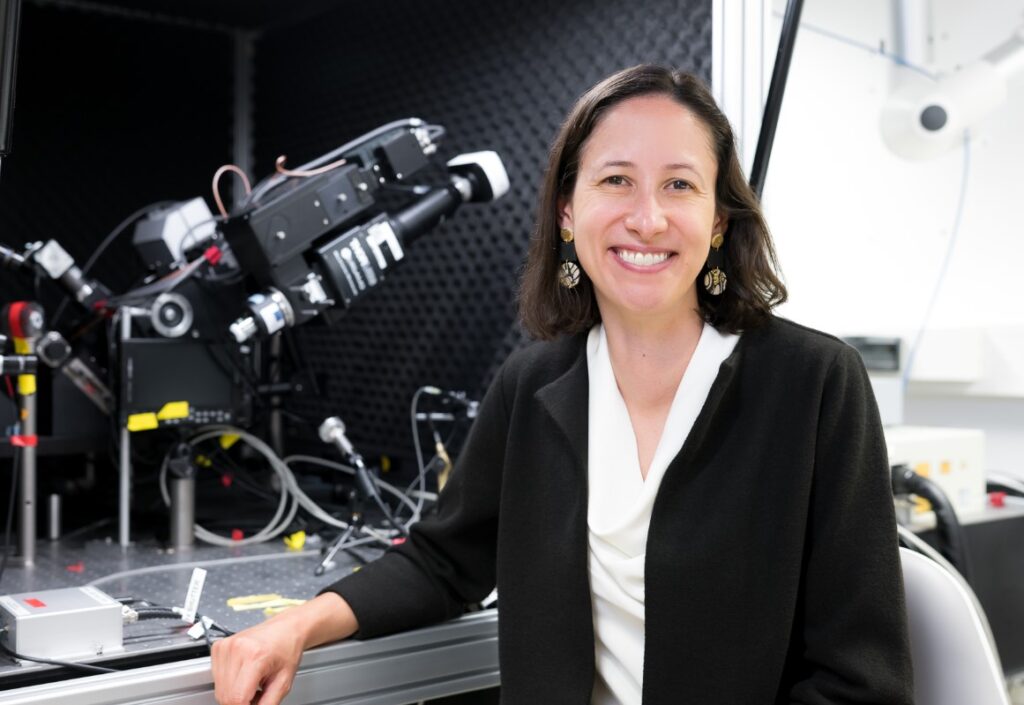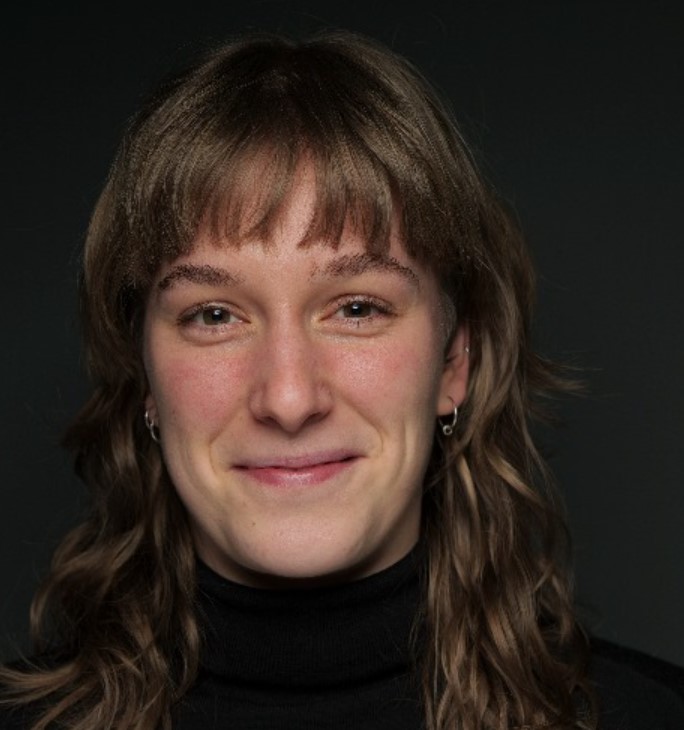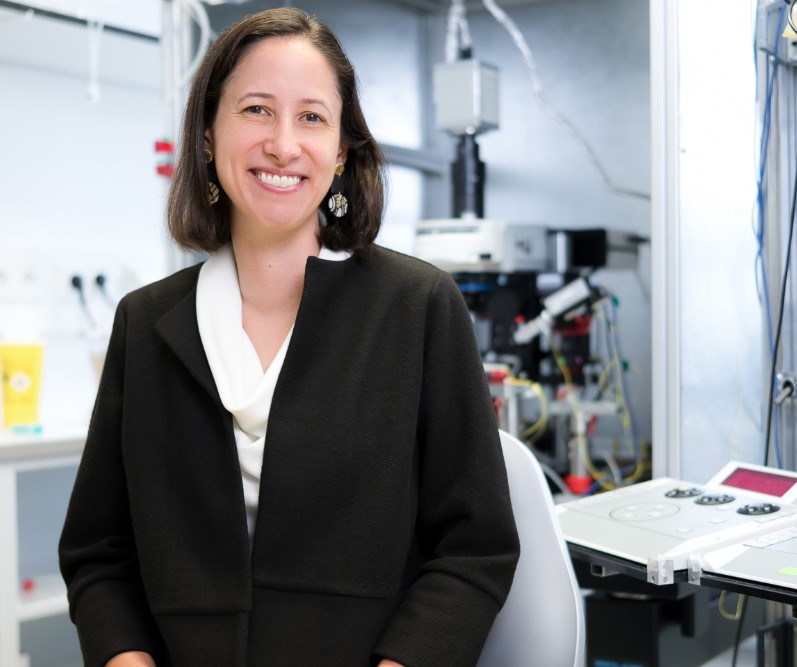Anna Schroeder is a leading figure in modern neuroscience, known for her groundbreaking research on how internal states like emotion and motivation shape behavior. As a tenure-track Assistant Professor at LMU Munich, she blends cutting-edge technology with deep scientific inquiry to explore the brain’s most elusive circuits.
Quick Bio
| Attribute | Details |
|---|---|
| Full Name | Anna Schroeder |
| Current Position | Assistant Professor of Systemic Neuroscience at LMU |
| Lab Name | Schroeder Lab |
| Research Focus | Neural circuits, internal states, behavioral flexibility |
| Birthplace | New York, USA |
| Education | B.A. University of Chicago, M.Sc. Charité Berlin, Ph.D. KU Leuven |
| Postdoctoral Training | Max Planck Institute, University of Freiburg |
| Key Awards | ERC Starting Grant, BBRF Young Investigator Award |
| Affiliations | MCN, BCCN Munich, IMPRS for Biological Intelligence |
| Teaching Roles | LMU Faculty of Biology, IMPRS for Translational Psychiatry |
Early Life and Academic Background

Born and raised in New York, Anna Schroeder developed an early fascination with the brain and its mysteries. Her upbringing in a culturally rich and intellectually curious environment laid the foundation for a career in science. Encouraged by mentors and driven by a passion for understanding human behavior, she pursued neuroscience with unwavering focus.
Undergraduate and Graduate Studies
Anna earned her B.A. in Neuroscience from the University of Chicago, graduating with honors and completing her thesis at the university’s medical center. She then moved to Europe for her M.Sc. in Neuroscience at Charité Berlin, where she was awarded the prestigious NeuroCure Scholarship. Her academic journey culminated in a Ph.D. from KU Leuven, where she trained under Prof. Joris de Wit and was ranked in the top 2% of doctoral candidates ever evaluated.
Postdoctoral Research and Global Training

Her postdoctoral training was equally impressive. Anna held fellowships at the Max Planck Institute for Brain Research and the University of Freiburg, working with Prof. Johannes Letzkus. She also completed a two-year guest residency with Prof. Erin Schuman. Her scientific education spans more than a dozen institutions across ten countries, including research stays at University College London, EPFL Lausanne, and Saints-Pères Paris Institute for the Neurosciences. These experiences enriched her perspective and equipped her with a global understanding of neuroscience.
Current Role at LMU Munich
In 2025, Anna joined Ludwig Maximilian University of Munich as a tenure-track Assistant Professor of Systemic Neuroscience. She leads the Schroeder Lab, which investigates how the brain transforms internal drives into adaptive behavior. Her lab is part of the Munich Center for Neurosciences and the Bernstein Center for Computational Neuroscience, placing her at the heart of Europe’s neuroscience community.
Research Focus and Scientific Goals

Anna’s research centers on the zona incerta, a subthalamic brain region that regulates a wide range of behaviors. She explores how internal states—such as fear, curiosity, hunger, and fatigue—are generated and processed by neural circuits. Her goal is to understand how these states interact with external cues and past experiences to guide flexible behavior. This work has profound implications for developing therapies for psychiatric disorders through neuromodulation.
Schroeder Lab and Methodologies
The Schroeder Lab employs a suite of advanced technologies to probe brain function. These include optogenetics, chemogenetics, in vivo calcium imaging using two-photon microscopy and Miniscopes, whole-cell patch-clamp electrophysiology, and viral circuit tracing. Molecular profiling techniques like single-cell RNA sequencing and multiplexed fluorescent in situ hybridization are also used. Behavioral paradigms are paired with machine learning to analyze data and model brain computations.
Key Publications and Scientific Contributions
Anna has authored influential papers in top journals. Her 2023 Neuron study revealed how inhibitory projections from the zona incerta mediate neocortical memory. In Cell Reports (2024), she co-authored a paper on Layer 1 NDNF interneurons as top-down regulators of cortical circuits. Her work in Trends in Neurosciences and Neuron (2018) has been highlighted for its insights into synaptic adhesion and hippocampal circuit function. These publications underscore her role in advancing our understanding of brain plasticity and memory.
Awards and Fellowships
Anna’s work has been recognized with numerous awards. She received a Starting Grant from the European Research Council (ERC), valued at €1.5 million, and the BBRF Young Investigator Award. Her postdoctoral training was supported by fellowships from Marie Skłodowska-Curie Actions, EMBO, and the Alexander von Humboldt Foundation. She also earned scholarships from DAAD, ThinkSwiss, and the Peter and Traudl Engelhorn Foundation, reflecting her academic excellence and international impact.
Teaching and Mentorship
Teaching is central to Anna’s mission. She lectures at LMU Munich within the Faculty of Biology and the Graduate School of Systemic Neurosciences. She also serves as faculty for the International Max Planck Research Schools (IMPRS) for Biological Intelligence and Translational Psychiatry. Her mentorship extends to supervising students from the University of Chicago and European institutions, fostering the next generation of neuroscientists.
Advocacy and Outreach for Women in Science
Anna is a passionate advocate for women in STEM. She served as President of the Women in Science organization at the University of Chicago and has led outreach programs at the Max Planck Institute. She’s a selection committee member for the L’Oréal-UNESCO For Women in Science Awards, helping to elevate female scientists globally. Her efforts reflect a commitment to equity, mentorship, and community engagement.
Public Image and Media Engagement
Anna’s public presence includes invited talks at major conferences like SFN, Gordon Research Conferences, and EMBO. She’s been a guest on science podcasts and career panels, sharing insights on neuroscience and academic life. Her ability to communicate complex ideas with clarity and passion makes her a respected voice in science communication.
Conclusion
Anna Schroeder is redefining how we understand the brain’s response to internal states. Her research bridges molecular neuroscience, behavioral science, and computational modeling, offering new paths for treating psychiatric conditions. Through her work at LMU Munich, she continues to inspire students, collaborate globally, and push the boundaries of brain research. Her legacy is one of intellectual rigor, compassionate mentorship, and scientific innovation.
Frequently Asked Question
Who is Anna Schroeder?
She is a neuroscientist and Assistant Professor at LMU Munich, leading research on internal states and behavior.
What does the Schroeder Lab study?
The lab investigates how emotions and motivations are processed in the brain, focusing on the zona incerta.
What awards has Anna Schroeder received?
She has earned the ERC Starting Grant, BBRF Young Investigator Award, and multiple international fellowships.
Is Anna Schroeder involved in teaching?
Yes, she teaches at LMU and mentors students through IMPRS and other academic programs.
Does Anna Schroeder support women in science?
Absolutely—she leads outreach initiatives and serves on the L’Oréal-UNESCO selection committee.
For More Updates Visit: Biomagazine












Leave a Reply